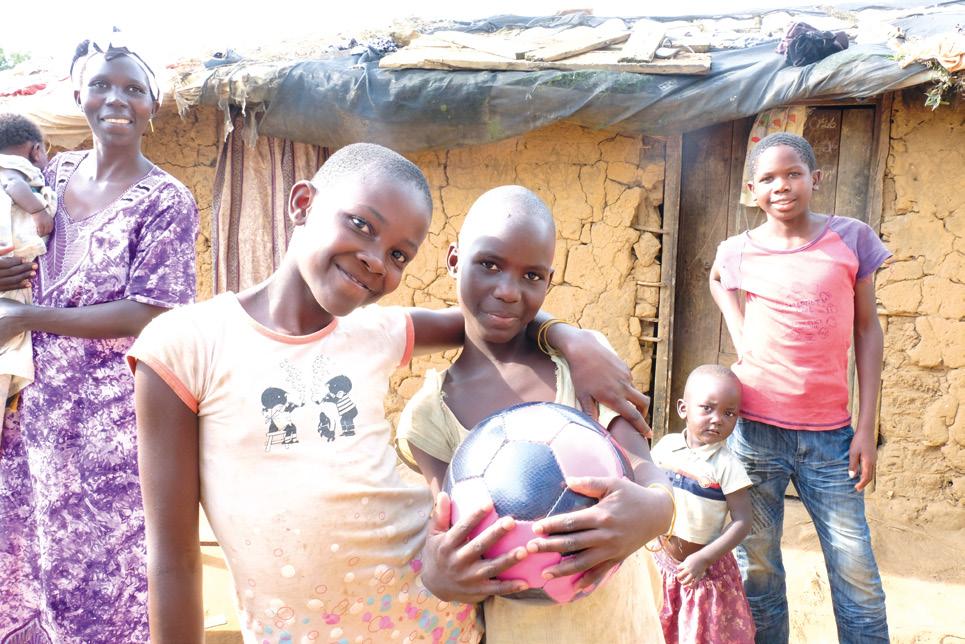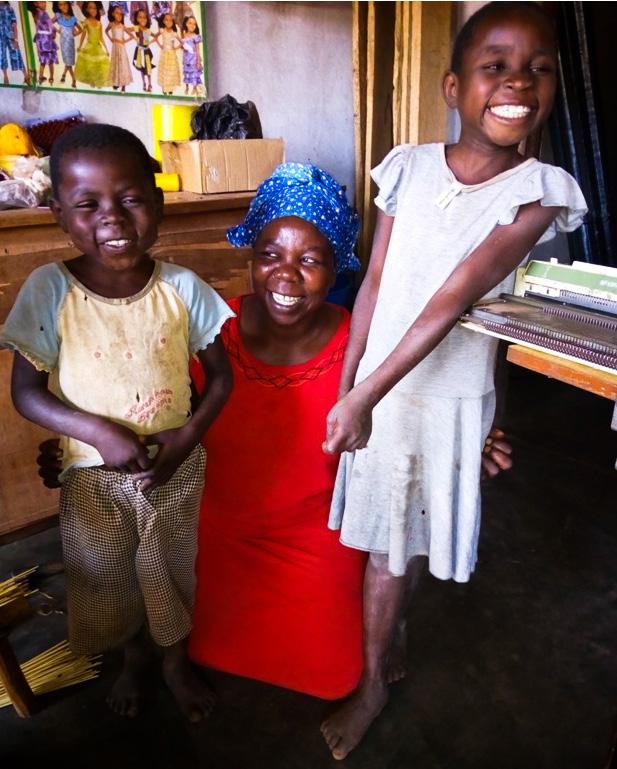
7 minute read
ACCoSS Reintegration programme
Uganda
DURATION: October 2018 - December 2021 TOTAL BUDGET: €538,502 – spent in 2020 €170,344
Advertisement
Project description
The ACCoSS (Alternative Care Consortium on System Strengthening) pilot project focuses on reintegrating children currently living in alternative care – institutional as well as the SOS Children’s Villages’ family-based care – with their biological parents or wider family. Immediate cause: the Ugandan Government reform of care for children in alternative care. Many children appeared to have been wrongfully living in orphanages as these children still have family. In addition, many institutions were seemingly operating without any permits or provided poor care, as a result of which the children were neglected. At the same time, there are many tens of thousands of children in Uganda that really do have to fend for themselves, but there is no place for them. SOS Children’s Villages Uganda, just like a number of other organisations, has seized on the Ugandan Government’s reform policy to 1. Perform a critical assessment of its own placement policy (gatekeeping system); 2. Examine whether there are any children whose biological family is still around, which is now resilient enough, and whose home situation is stable enough for them to safely return home. This reintegration process must be handled carefully. For this reason SOS Children’s Villages Uganda has taken the initiative to collaborate with a network of organisations and diligently map out the ideal reintegration process. In order to advise the government accordingly on the necessary quality standards that must be incorporated in national policy.
Prevention as the basic principle In the context of the project families and communities are supported so they can continue to take care of their children instead of the children being placed in institutional care. We support parents/caregivers in looking after their children through activities for capacity building in the areas of parenting skills, economic strengthening and psychosocial support. The reintegration process is closely guided by professional care providers, in which the relationship with and position in relation to any other children in the family is an important focal point. At the same time children are encouraged to actively participate in children’s rights clubs and peer network groups. So they will be able to report best practices as well as recognise and report child abuse, exploitation and violations.
Target group
• 100 children aged 0-18 years who are placed in care after being separated from their families due to social, economic or political reasons. • Vulnerable families in target districts who were separated from their children due to inadequate capacity to provide care and protection to their family members. • Government and local administration structures and staff whose capacity needs to be developed in order to effectively implement the national alternative care framework.
Sustainable Development Goals
Main activities and results in 2020
• 112 children and young people (57 from the children’s village, 55 from six other institutes) were reintegrated in their biological families. As a result of Covid-19 the reintegration activities were halted during the year, the programme has now been extended by a year. • Telephone contact was maintained with the reintegrated children during lockdown.
Families were hit hard due to the closure of schools and the fact that they could not work. This caused financial as well as psychological stress. We distributed food parcels and school materials, but the situation has had an effect on the devel-
opment of children and young people and the situation at home. We continue to provide the families with guidance and support, including psychological support, in 2021. • At the end of 2020, draft legislation was developed, based on research and recommendations by Uganda Makerere
University involved in the pilot and our international guidelines, which should ensure that children no longer wrongly end up in an institution for alternative care.
Impact
The vicious circle of separation and abandonment has been broken: for children in alternative care, the bonds with their own families are re-established, so that many of these children can be reunited with and grow up safely within their own families. With our advice to the government on the necessary quality standards for successful and safe reintegration, we advocate for them to be enshrined in national policy. At the same time, fewer children are unjustifiably entering alternative care thanks to improved family-strengthening policies.
Focal points 2021
The project should have been completed in 2020, but because of Covid-19 and the resulting lockdown, the project’s duration has been extended by a year. • Further support and guidance for (the families of) 57 children in the Children’s
Villages who have been reintegrated. • Reintegration of 43 children from the
Children’s Villages in their families. • Development of sustainable reintegration policy for children placed temporarily in a
Children’s Village.
Reintegration: a lengthy process full of ups and downs
“With their reintegration, children discover where they belong, they have found their home. For many children who grew up in care, it has been a missing link in their lives.” These are the words of Owens Berunga - Child Safeguarding Manager at SOS Children’s Villages Uganda and coordinator of the ACCoSS reintegration programme. Here he explains how family reunification is achieved.
“The process of family reintegration is a lengthy one that needs to be followed closely and carefully. There are many, varied challenges, there are ups and downs - for both the children and the parents, and at the same time it is a learning process for the social workers who supervise the entire process.
What is needed to make reintegration possible?
The process starts with tracing the family of the children in care. This is already difficult in some cases, as it is not always clear where a parent or the wider family is located. When the family has been found, a family assessment follows: is there an adult carer, what are the capacities and what are the risk factors - are there issues that could potentially traumatise a child, and what support is needed to make reintegration possible? We want to avoid a second (traumatic) abandonment at all costs. Many of the families in which the children reintegrate are vulnerable. It is not just a simple matter of them taking their children back. The family must be supported and that is what we do. Once these aspects have been mapped out, a plan is drawn up and we start preparing the child, the family and the community for the return to the family of origin. This can sometimes take up to a year.
Supporting the child, family and community
The care and resources a child has received growing up in an SOS family is often incomparable with the care they are going to receive. The difference can be quite substantial. Therefore, it is very important to prepare the child properly, to guide them emotionally, to ask about their worries and feelings, to listen. We take them to the life that awaits them, visit their families. At the same time, we prepare the family, the parents and any other children in the family. The children must also accept each other. We discuss what kind of care children require, their rights and needs, and jointly examine, with the parents, the areas in which they need guidance and strengthening. In principle, they become part of the family-strengthening programme.
We look at whether the child can continue to attend his/her current school or whether a new school must be found because of the distance, the accessibility of medical care, whether a mattress or mosquito net must be purchased, and clothing. This includes all the children in the family being treated the same - no one is favoured, no one is treated as subordinate. If one child goes to school, they all go to school. Consequently, this means that through reintegration, we directly support more children. Then we prepare the community, to avoid stigmatisation and inform local organisations of their return.
Discovering your role in the new family dynamics
Finally the moment of actual reintegration arrives. And no matter how well prepared everyone is, when something becomes a daily reality, it always feels different and often harsher. It can be a culture shock, especially for the children. The initial period is often overwhelming. A child has to navigate the everyday family dynamics and discover his/her own role and responsibilities therein, and on top of all that, suddenly you don’t have any electricity or running water in your house. Everything needs getting used to and social change takes time, the children and families are carefully guided in this process. But children are resilient and in most cases get used to the new situation quite quickly. We see them becoming more independent, growing and often that the other children in the family follow suit. In the end, returning to your family should not be a punishment either, but a joyful moment for all the family members involved.”











